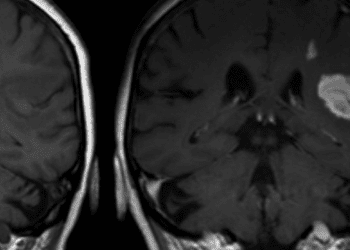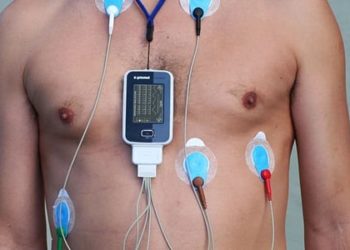Hospital admission linked to reduced quality and quantity of sleep
1. For patients admitted to hospital, the reported quantity and quality of sleep was reported to be worse compared to habitual at home sleep baselines.
2. Potentially modifiable disturbances to sleep, including hospital staff disturbances and noise from medical devices, were reported to be frequent.
Evidence Rating Level: 3 (Average)
Study Rundown: Sleep has demonstrated importance in maintaining cognitive and emotional functioning, as well as proper endocrine, metabolic, and immune system functioning; sleep deprivation has been implicated as a cause of delirium. Despite the importance of healthy sleep patterns, many patients admitted in hospital report disturbed sleep which may hinder their convalescence. The current study sought to better evaluate the degree and potential causative factors associated with decreased sleep quality and quantity in patients admitted to hospital. The study found that total sleep was decreased, mostly due to earlier awakening time and more frequent awakenings. Common disturbing factors included noise from other patients, being awakened by hospital staff, toilet visits, and noise of hospital equipment.
The study’s main strength is its large, heterogenous sample size achieved through flash-mob design. It has numerous limitations including the reliance of self-reported sleep metrics, recall bias, exclusion of patients with delirium or cognitive impairments, and lack of data on the factors that may influence habitual sleep at home.
Click to read the study in JAMA Internal Medicine
Relevant Reading: Sleep quality and sleep disturbing factors of inpatients in a Chinese general hospital
In-Depth [cross-sectional study]: This study was a single day, multi-centre, cross-sectional, observation study that used a flash-mob research method to recruit participating centres, and participants form the Netherlands. Patients admitted to a Netherlands hospital, aged 18-years or older, who spent the night before the study date in hospital were included. Patients in critical care, including intensive care, coronary care, and stroke units were excluded. Sleep quality and quantity was evaluated using the Consensus Sleep Diary questionnaire and the Dutch-Flemish Patient-Reported Outcomes Measurement Information System (PROMIS), version 1.0, sleep disturbance item bank.
A total of 2005 patients were included in the study, mostly from non-surgical wards (81.0%). Mean total sleep was 83 minutes shorter in hospital compared to baseline habitual level (P<0.001), with earlier awakening by 44 minutes (95%CI, 44-45 minutes), and more awakenings (3.3 vs. 2.0, P < .001) noted. All 6 categories evaluating quality of sleep were worse in hospital. Hospital related factors for sleep disturbance were present for 64.6% of respondents and included noise from other patients (22.6%), toilet visits (21.6%), awakening by hospital staff (20.1%), and noise from hospital equipment (19.4%).
Image: PD
©2018 2 Minute Medicine, Inc. All rights reserved. No works may be reproduced without expressed written consent from 2 Minute Medicine, Inc. Inquire about licensing here. No article should be construed as medical advice and is not intended as such by the authors or by 2 Minute Medicine, Inc.





![Endostatin directly binds androgen receptors to treat prostate cancer [PreClinical]](https://www.2minutemedicine.com/wp-content/uploads/2015/01/Endostatin-75x75.jpeg)

